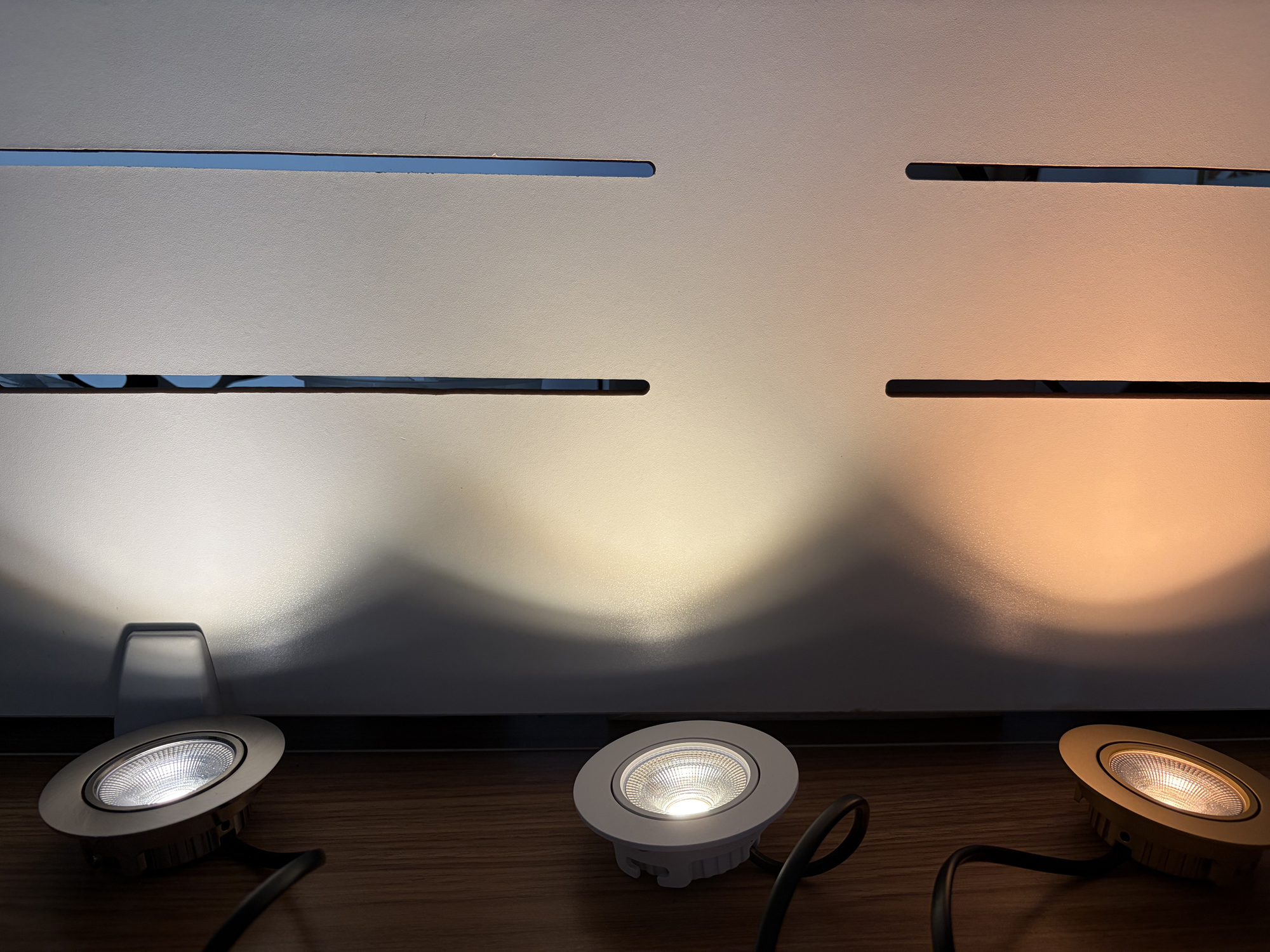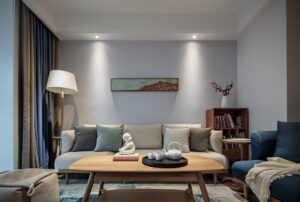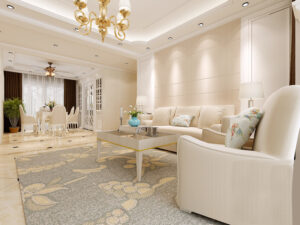Die Beleuchtung spielt eine entscheidende Rolle für Ambiente, Funktionalität und Ästhetik jedes Innenraums. Unter den verschiedenen Beleuchtungslösungen haben sich Downlights aufgrund ihres klaren, modernen Designs und ihrer effektiven Ausleuchtung als beliebte Wahl etabliert. Mit den sich wandelnden Trends in Architektur und Innenarchitektur entwickeln sich auch die Beleuchtungstechnologien weiter.
Eine bedeutende Innovation auf diesem Gebiet ist die Entwicklung von schlanke DownlightsSie bieten eine elegante Alternative zu herkömmlichen Einbauleuchten. Dieser Artikel untersucht die Unterschiede zwischen schlanken und traditionellen Einbauleuchten und konzentriert sich dabei auf deren Design, Installation, Leistung und Eignung für moderne Räume, insbesondere auf dem europäischen Markt.
Einführung in Downlights und ihre Bedeutung
Einbauleuchten sind in die Decke eingelassene Leuchten, die für gezieltes oder indirektes Licht sorgen. Sie sind in ganz Europa, darunter Deutschland, die Niederlande, Frankreich, Schweden, Dänemark, Norwegen und Großbritannien, in Wohn-, Gewerbe- und Gastronomiegebäuden weit verbreitet. Im Gegensatz zu Aufbauleuchten erzeugen Einbauleuchten ein minimalistisches Deckenbild und lassen Räume offener und aufgeräumter wirken.
Herkömmliche Einbauleuchten benötigen in der Regel eine tiefere Deckenöffnung, was in Räumen mit geringer Deckenhöhe problematisch sein kann. Diese Einschränkung hat zum Aufkommen von … geführt. schlanke DownlightsSie wurden entwickelt, um auch in beengten Räumen Platz zu finden, ohne Kompromisse bei Lichtqualität oder Energieeffizienz einzugehen. Diese Innovationen sind besonders wertvoll in europäischen Wohnungen und Büros, wo optimale Raumnutzung und ästhetische Harmonie Priorität haben.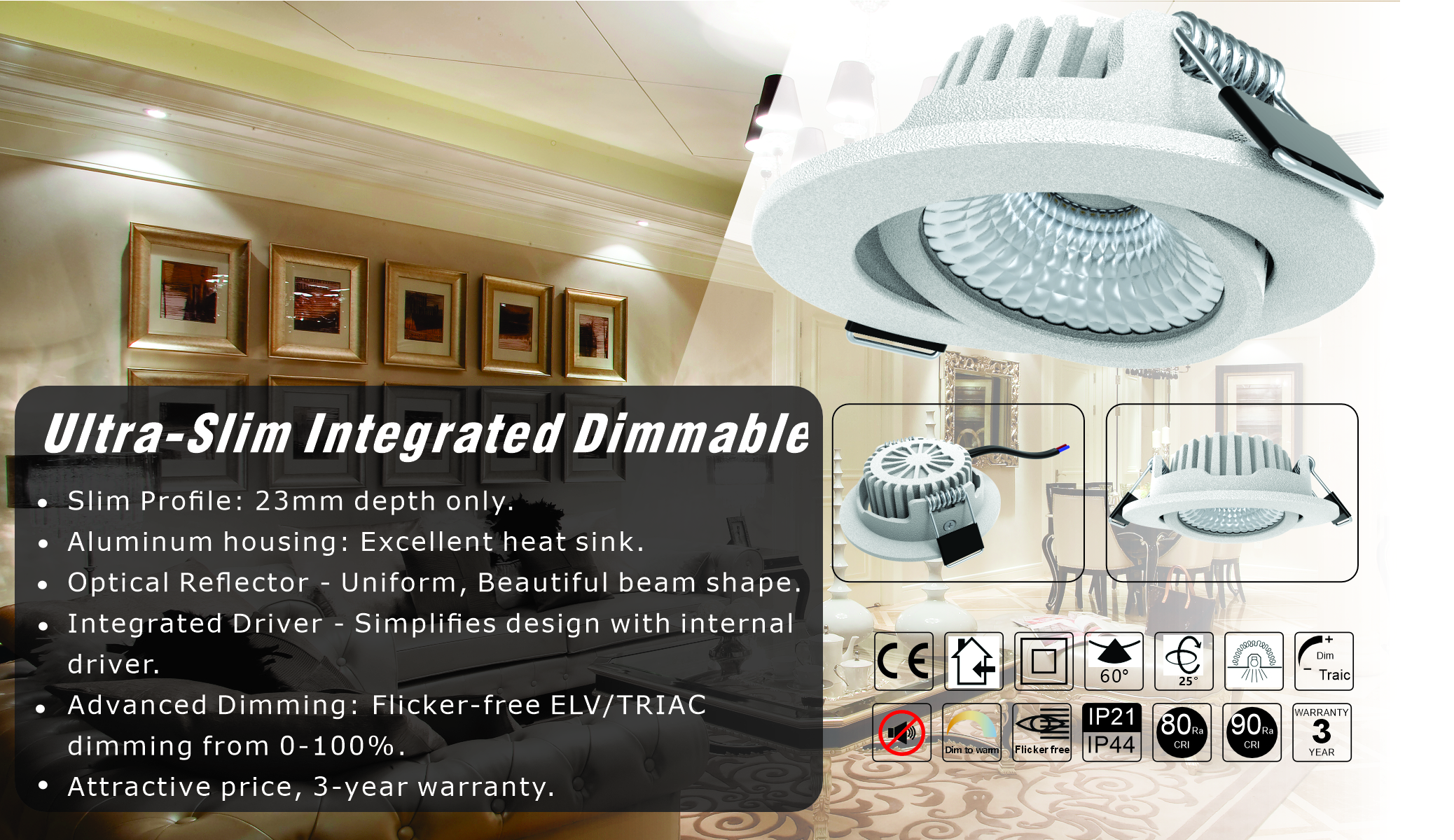
Konstruktions- und Strukturunterschiede
Traditionelle Einbaustrahler
Herkömmliche Einbaustrahler bestehen in der Regel aus einem Gehäuse, das in die Deckenöffnung eingesetzt wird, einem Reflektor und der Lichtquelle, meist einer Halogen- oder LED-Lampe. Die Gehäusetiefe kann je nach Modell und Lampentyp zwischen 100 mm und über 150 mm variieren. Aufgrund dieser Tiefe muss die Decke ausreichend hoch sein, was in älteren Gebäuden oder Räumen mit niedrigen Decken nicht immer gegeben ist.
Herkömmliche Einbauleuchten bieten eine hohe Lichtausbeute und sind in verschiedenen Größen und Ausführungen erhältlich. Aufgrund ihrer sperrigen Bauweise ist ihr Einsatz in beengten Räumen jedoch eingeschränkt und die Installation erschwert.
Schlanke Downlights
Flache Einbaustrahler, auch bekannt als ultraflache oder Low-Profile-Einbaustrahler, zeichnen sich durch eine deutlich reduzierte Gehäusetiefe von oft weniger als 40 bis 50 mm aus und sind sogar noch flacher. Dank dieser kompakten Bauweise können sie auch in Decken mit geringer Deckenhöhe, wie z. B. abgehängten Decken, flachen Gipskartondecken oder bei Renovierungsprojekten mit begrenzter Deckenhöhe, installiert werden.
Trotz ihrer schlanken Bauweise bieten diese Einbauleuchten dank fortschrittlicher LED-Technologie und effizienter Wärmeableitung eine hohe Lichtausbeute. Ihr elegantes Design trägt zudem zu einer modernen, klaren Deckenoptik bei, die in zeitgenössischen europäischen Interieurs sehr beliebt ist.
Vorteile bei Installation und Platzersparnis
Der Hauptvorteil von flachen Einbaustrahlern liegt in ihrer platzsparende InstallationDurch ihre geringe Einbautiefe können sie ohne bauliche Veränderungen in Decken eingebaut werden, wo herkömmliche Einbauleuchten nicht passen. Dieser Vorteil ist in europäischen Städten von entscheidender Bedeutung, wo die optimale Nutzung des verfügbaren Raums unerlässlich ist.
Flache Einbauleuchten vereinfachen die Installation, da sie oft als integrierte Einheiten mit eingebauten Treibern geliefert werden, wodurch der Bedarf an separaten Komponenten reduziert wird. Diese Integration minimiert zudem die Unordnung an der Decke und potenzielle Fehlerquellen.
| Besonderheit | Traditionelle Einbaustrahler | Schlanke Downlights |
|---|---|---|
| Gehäusetiefe | 100 mm – 150 mm+ | 30 mm – 50 mm oder schmaler |
| Erforderliche Deckenhöhe | Hoch | Niedrig |
| Installationskomplexität | Mittel bis hoch | Niedrig bis mittel |
| Geeignet für Renovierungen | Beschränkt | Exzellent |
| Integrierter Treiber | Oft getrennt | Üblicherweise integriert |
Leistung und Energieeffizienz
Sowohl herkömmliche als auch flache Einbauleuchten nutzen heute überwiegend LED-Technologie und bieten energieeffiziente Beleuchtungslösungen. Flache Einbauleuchten integrieren jedoch häufig die neuesten LED-Innovationen, darunter eine hohe Lichtausbeute pro Watt und ein verbessertes Wärmemanagement. Dies führt zu folgenden Vorteilen:
- Geringerer Energieverbrauch im Vergleich zu älteren, herkömmlichen Einbauleuchten.
- Längere Lebensdauer aufgrund besserer Wärmeableitung.
- Dimmbarkeit und Kompatibilität mit intelligenten Steuerungssystemen, was das Benutzererlebnis verbessert.
Europäische Vorschriften legen zunehmend Wert auf Energieeffizienz und Nachhaltigkeit. Schlanke Einbauleuchten entsprechen diesen Trends und verfügen häufig über Zertifizierungen, die den EU-Energielabeln und -Richtlinien entsprechen.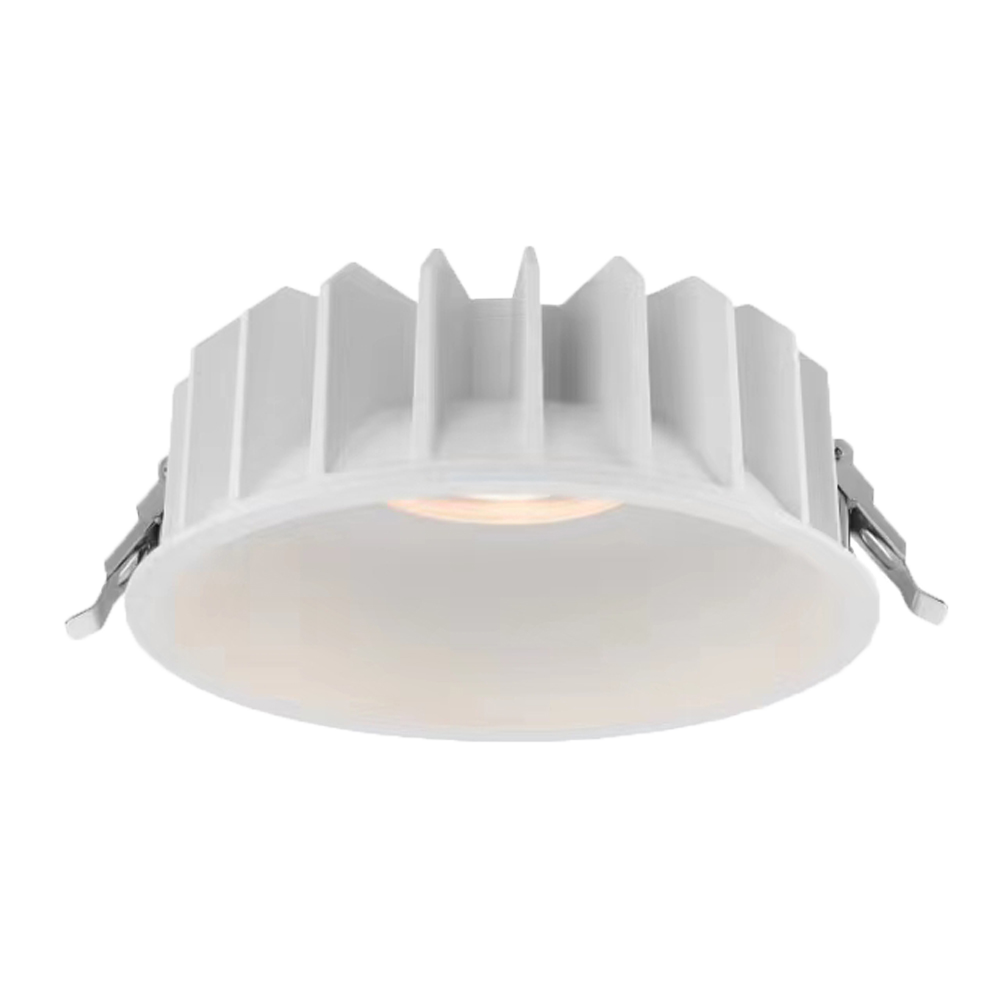
Ästhetische und funktionelle Überlegungen
Schlanke Einbaustrahler sorgen für eine minimalistische Ästhetik, die sich nahtlos in moderne Inneneinrichtungen einfügt. Durch ihr niedriges Profil reduzieren sie Schatten und Blendung und schaffen so eine gleichmäßige Ausleuchtung, ideal für Wohnzimmer, Küchen, Büros und Verkaufsflächen.
Herkömmliche Einbaustrahler bieten zwar eine größere Auswahl an Blenden und Oberflächen, wirken aber mitunter wuchtiger. Schmale Einbaustrahler hingegen verfügen oft über Optionen wie blendfreie Linsen, verstellbare Abstrahlwinkel und Farbtemperaturregelung und ermöglichen so vielseitige Beleuchtungskonzepte.
Anwendungsszenarien für schlanke Downlights
Flache Einbaustrahler erfreuen sich aufgrund ihrer Vielseitigkeit und platzsparenden Bauweise immer größerer Beliebtheit. Ihr schlankes, flaches Design macht sie für unterschiedlichste Umgebungen geeignet, von Wohnräumen bis hin zu Gewerbeimmobilien. Im Folgenden kategorisieren wir gängige Anwendungsszenarien und erläutern die jeweiligen Vorteile flacher Einbaustrahler.
Wohnräume
Wohnzimmer und Schlafzimmer
In modernen europäischen Häusern sorgen schlanke Einbaustrahler für eine elegante, unaufdringliche Beleuchtung, die minimalistische und zeitgenössische Interieurs perfekt ergänzt. Durch ihre flächenbündige Montage bleiben die Deckenlinien klar und die Räume mit niedrigen Decken wirken dadurch geräumiger.
Dank verstellbarer Abstrahlwinkel und Dimmfunktion können Hausbesitzer je nach Bedarf eine gemütliche Atmosphäre oder helles Arbeitslicht schaffen. In einem Wohnzimmer im skandinavischen Stil beispielsweise erzeugen warmweiße, schmale Downlights in Kombination mit natürlichen Materialien ein einladendes, „hygge“-artiges Ambiente.
Küchen und Badezimmer
Diese Bereiche benötigen aus Sicherheits- und Funktionsgründen eine helle, fokussierte Beleuchtung. Schlanke Einbaustrahler passen perfekt in die flachen Deckenhohlräume, die in Küchen und Badezimmern häufig vorkommen, und bieten eine helle, blendfreie Ausleuchtung ohne sperrige Leuchten. Ihre energieeffizienten LEDs reduzieren den Stromverbrauch und tragen somit zu den europäischen Nachhaltigkeitszielen bei.
Gewerbe- und Gastgewerbeeinrichtungen
Büro- und Einzelhandelsflächen
Schlanke Downlights sorgen für eine gleichmäßige, hochwertige Ausleuchtung, die Produktivität und Produktsichtbarkeit verbessert. Dank ihres flachen Designs lassen sie sich in abgehängten oder modularen Decken installieren, ohne die Raumhöhe einzuschränken – eine häufige Herausforderung in Gewerbegebäuden. Die integrierten Treiber und Wärmemanagementsysteme gewährleisten eine lange Lebensdauer bei minimalem Wartungsaufwand und reduzieren so die Betriebskosten.
Hotels und Restaurants
In der Gastronomie prägt die Beleuchtung die Atmosphäre maßgeblich. Schlanke Downlights bieten dimmbare Optionen, um das Ambiente von hellem Tageslicht bis hin zu intimer Abendstimmung anzupassen. Ihr elegantes Design fügt sich harmonisch in stilvolle Interieurs im europäischen Stil ein, wie sie beispielsweise in Boutique-Hotels oder gehobenen Restaurants zu finden sind. Die Möglichkeit, Oberflächen und Farbtemperaturen individuell anzupassen, steigert ihre Attraktivität in diesen Umgebungen zusätzlich.
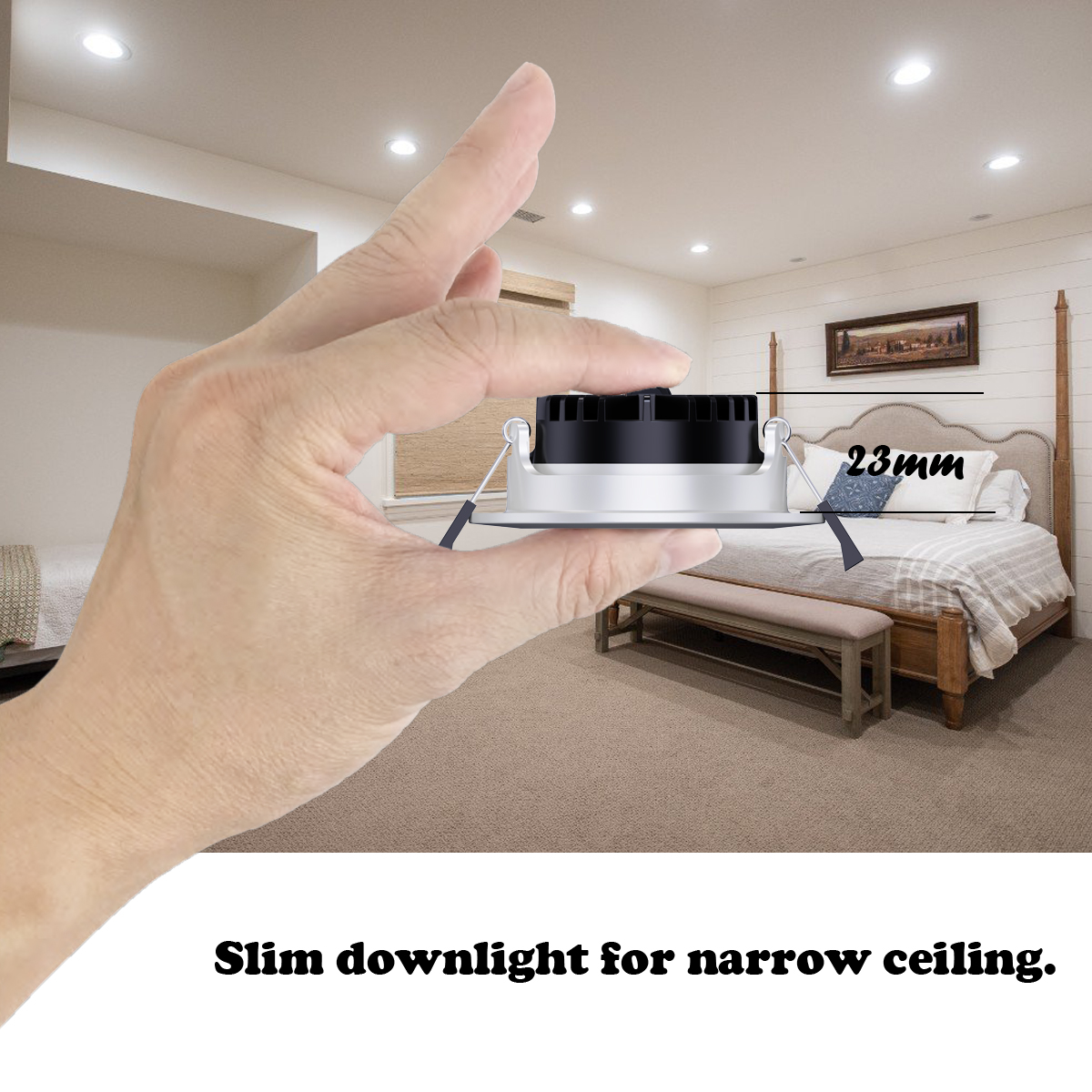 Renovierungs- und Sanierungsprojekte
Renovierungs- und Sanierungsprojekte
Flache Einbaustrahler eignen sich ideal für Renovierungsprojekte mit geringer Deckenhöhe, beispielsweise in historischen europäischen Gebäuden oder Wohnungen mit bereits niedrigen Decken. Dank ihres kompakten Gehäuses sind nur minimale Deckenanpassungen nötig, was Installationszeit und -kosten reduziert. Dadurch sind sie eine praktische Wahl für die Modernisierung der Beleuchtung ohne umfangreiche Bauarbeiten.
Vorteile von flachen Downlights in diesen Anwendungsbereichen
- Platzeffizienz: Dank ihres ultradünnen Profils (oft unter 50 mm) ermöglichen sie die Installation auch bei begrenzter Deckenhöhe, wodurch die architektonische Integrität erhalten bleibt und der nutzbare Raum maximiert wird.
- Ästhetische Integration: Schmale Downlights sorgen für ein nahtloses, bündiges Erscheinungsbild, das moderne und traditionelle europäische Interieurs ergänzt, ohne optische Unruhe zu erzeugen.
- Energieeffizienz: Durch die Nutzung modernster LED-Technologie verbrauchen sie weniger Strom bei gleichzeitig hoher Lichtausbeute und unterstützen so die Energiesparvorschriften in ganz Europa.
- Vielseitigkeit: Einstellbare Abstrahlwinkel, Dimmbarkeit und individuell anpassbare Farbtemperaturen ermöglichen maßgeschneiderte Beleuchtungskonzepte, die für verschiedene Umgebungen geeignet sind.
- Einfache Installation: Integrierte Treiber und kompakte Bauformen vereinfachen die Montage, insbesondere bei Nachrüstungsprojekten, und reduzieren so Arbeitsaufwand und Störungen.
- Langzeitbeständigkeit: Die fortschrittliche Wärmeableitung verlängert die Lebensdauer und minimiert die Wartungs- und Ersatzkosten – ein entscheidender Vorteil für den Gewerbe- und Gastgewerbesektor.
Die flachen Einbauleuchten von Radians Lighting veranschaulichen diese Vorteile beispielsweise. Ihre Produkte sind so konzipiert, dass sie sich nahtlos in flache Decken einfügen und bieten individuell anpassbare Oberflächen sowie Dimmfunktionen, die sowohl Wohn- als auch Geschäftsräume aufwerten. Entdecken Sie ihre Energieeffiziente, schlanke Einbauleuchten um Modelle zu finden, die auf spezifische Anwendungen zugeschnitten sind.
Wir stellen Radians Lighting vor: Innovation und Qualität bei Einbauleuchten
Radians Lighting ist ein führender europäischer Hersteller, der sich auf hochwertige LED-Einbauleuchten spezialisiert hat und sowohl traditionelle als auch schlanke Modelle anbietet. Mit einem starken Fokus auf Produktindividualisierung, innovatives Design und strenge ProduktionsqualitätskontrolleRadians Lighting bietet Beleuchtungslösungen, die auf unterschiedliche architektonische Anforderungen zugeschnitten sind.
Das Produktsortiment von Radians Lighting umfasst ultraflache Einbauleuchten, dimmbare Varianten und intelligente Beleuchtungssysteme, die sich nahtlos in moderne Smart-Home-Technologien integrieren lassen. Das Engagement für Nachhaltigkeit zeigt sich im Einsatz recycelbarer Materialien und energieeffizienter LED-Komponenten, die den strengen Standards des europäischen Marktes entsprechen.
Kunden können den umfangreichen Katalog von Radians Lighting an Einbauleuchten erkunden, darunter:
Radians Lighting bietet auch maßgeschneiderte Beleuchtungslösungen an und arbeitet eng mit Architekten und Designern zusammen, um Leuchten zu entwickeln, die spezifischen räumlichen und ästhetischen Anforderungen gerecht werden. Die strenge Qualitätskontrolle gewährleistet, dass jedes Produkt eine gleichbleibende Leistung und Langlebigkeit aufweist.
Zum Beispiel ihre beliebten 6W LED-Downlight Verbindet schlankes Design mit effizienter Beleuchtung und ist somit ideal für Wohn- und Gewerbeprojekte.
Vergleichsanalyse: Schlanke Einbaustrahler vs. herkömmliche Einbaustrahler
| Aspekt | Schlanke Downlights | Traditionelle Einbaustrahler |
|---|---|---|
| Installation | Schnell, geeignet für niedrige Decken, weniger aufwändig | Erfordert eine höhere Decke, ist invasiver. |
| Platzeffizienz | Ideal für Renovierungen und beengte Platzverhältnisse | Begrenzt durch die Gehäusetiefe |
| Lichtqualität | Hoher Farbwiedergabeindex (CRI), einstellbare Abstrahlwinkel, blendfrei | Gute Lichtqualität, weniger flexibel |
| Energieeffizienz | Hochwertige, neueste LED-Technologie, integrierte Treiber | Effizient, aber oft weniger fortschrittlich |
| Ästhetischer Reiz | Minimalistisch, modern, deckenbündig | Umfangreichere, besser sichtbare Verkleidungsoptionen |
| Kosten | Etwas höhere Anschaffungskosten aufgrund der Technologie | Im Allgemeinen niedrigere Anfangskosten |
| Wartung | Niedrige, längere Lebensdauer, integrierte Einheiten | Mäßige, separate Komponenten |
Praktische Anwendungen und Empfehlungen
Für Hausbesitzer und Designer in Europa bieten flache Einbaustrahler eine praktische Lösung für Räume mit geringer Deckenhöhe. Sie eignen sich ideal für:
- Wohnungen mit niedrigen Decken
- Renovierungsprojekte, bei denen die Deckengestaltung eingeschränkt ist
- Gewerberäume, die eine moderne, unaufdringliche Beleuchtung benötigen
- Bereiche, die eine intelligente Beleuchtungsintegration benötigen.
Traditionelle Einbaustrahler eignen sich weiterhin für Neubauten mit ausreichend Deckenfläche und wenn Budgetbeschränkungen niedrigere Anschaffungskosten priorisieren.
Abschluss
Die Entwicklung von herkömmlichen Einbauleuchten zu schlanken Einbauleuchten stellt einen bedeutenden Fortschritt in der Beleuchtungstechnik dar, der durch den Bedarf an platzsparenden, energieeffizienten und ästhetisch ansprechenden Lösungen vorangetrieben wurde. Schlanke Einbauleuchten eignen sich hervorragend für Räume mit geringer Deckenhöhe und bieten modernes Design, überlegene Energieeffizienz und vielseitige Beleuchtungsmöglichkeiten. Für europäische Märkte, in denen architektonische Vorgaben und Nachhaltigkeit von größter Bedeutung sind, stellen schlanke Einbauleuchten eine überzeugende Option dar.
Radians Lighting zeichnet sich als zuverlässiger Anbieter aus und liefert individuell anpassbare, hochwertige Downlights, die den Anforderungen von 2025 und darüber hinaus gerecht werden. Ihre Produkte vereinen Innovation, Effizienz und herausragendes Design und machen sie damit zu einem bevorzugten Partner für Beleuchtungslösungen in ganz Europa.
Die Wahl zwischen schlanken und herkömmlichen Einbaustrahlern hängt von den jeweiligen Projektanforderungen ab, doch der Trend geht eindeutig zu schlanken Einbaustrahlern aufgrund ihrer Anpassungsfähigkeit und Zukunftssicherheit. Weitere Informationen zum Angebot von Radians Lighting und zur Produktpalette finden Sie auf der offiziellen Website unter [Website-Adresse einfügen]. radianslighting.com.


